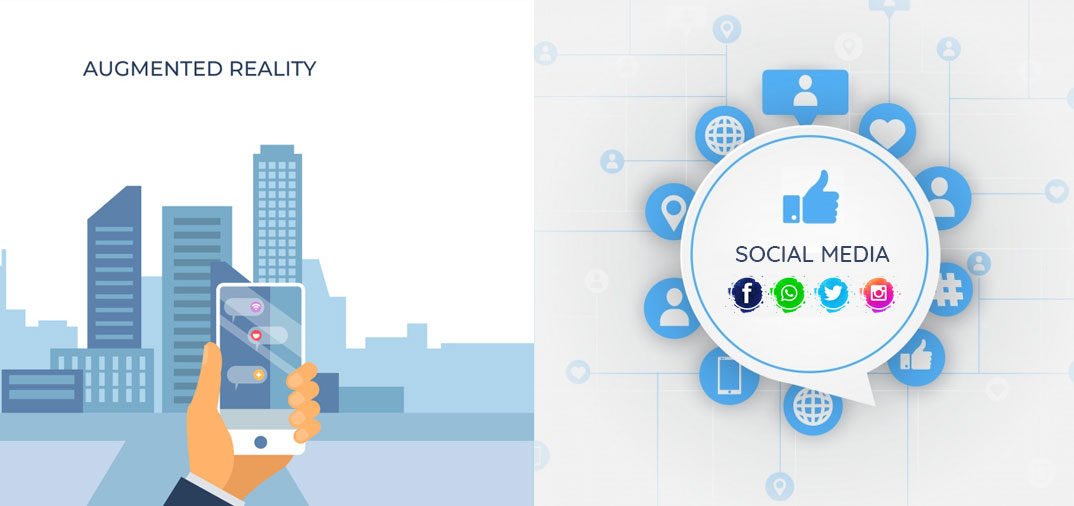AR is already impacting social media – and its done so for years now. In fact, it seems like AR is taking over the most popular social networks including – Facebook, Instagram, Snapchat. The big question is, how will it continue to impact social media? Brands and marketers, in particular, need to know this if they are going to be at the forefront of AR in social media and find new ways to boost their sales.
While many still see augmented reality as a means of harmless fun, whether it’s a game or an exciting photo filter, the potential for this technology is absolutely amazing – it has already made entered a number of industries, including healthcare, education, navigation, manufacturing, marketing and so many more. And, as the technology evolves and becomes more accessible, it will continue to do so at a very rapid rate.
Now coming back to social media, in particular, several questions might pop up in your mind. Is augmented reality the future of social media? And how will it affect brands and marketers?
Let’s try and find the answers in the following discussion.
AR Virtual Stores On Social Media
With the evolution of technology, people can already buy products via social media, but with AR, this could turn into a much more engaging experience. People won’t even have to visit physical stores any longer – they’ll be able to step into a virtual store, try out the products and buy them directly online.
Faincarter, a real estate mogul and emerging pop music icon under the Smith and Hay umbrella, says, “Imagine a consumer experience where shoppers are able to try your products and make a purchase without ever walking into your store. More people would proceed to cart as they’d be more decisive, leading to an increase in sales and growth in customer loyalty.”
“And it’s what brands like Estée Lauder are currently doing,” Faincarter said. “The brand invites users to try out different shades of lipstick from wherever they are, through LipArtist, a Facebook Messenger bot. If you like how you look, you can then proceed to the brand’s website to make a purchase.”
Based on the 1.3 billion daily Messenger users, one would definitely call this a smart marketing move.
AR And Live Events
Imagine attending an event from the comfort of your home? Or playing AR games with other fans? This is nor more an imagination. Already being implemented by several organisations and brands, this allows people to get involved in the live events without actually leaving the comfort of their homes and couches.
For example, the PGA Tour enables fans to download their AR app and start engaging with the event in unique ways – all they really need is a smart phone, the app and a flat surface.
A Tool for Empathy and Cognitive Enhancement
Undoubtedly, the rise of digital media brings along a platform for spreading crucial information. Every day we witness several organizations who are championing for change through the social media platforms.
With AR, social media will become an ideal platform for addressing global issues. It is expected that humanitarian crises will be highlighted through the social media platforms; AR will evoke levels of empathy with the help of social media across the world. This is completely contrary to the expectations of people, who think that digital media will lead to a decline in empathy.
Furthermore, the developers of AR are convinced that it can help drive empathy for the global crisis. So organizations can take advantage and raise their issues via social media.
To Sum Up
Augmented Reality offers a good future for social media users and businesses all across the globe. The future trends appear to be a good illustration of what lies ahead for these groups.
You just got to press the right key and within the blink of an eye, you might be touching the sky.






